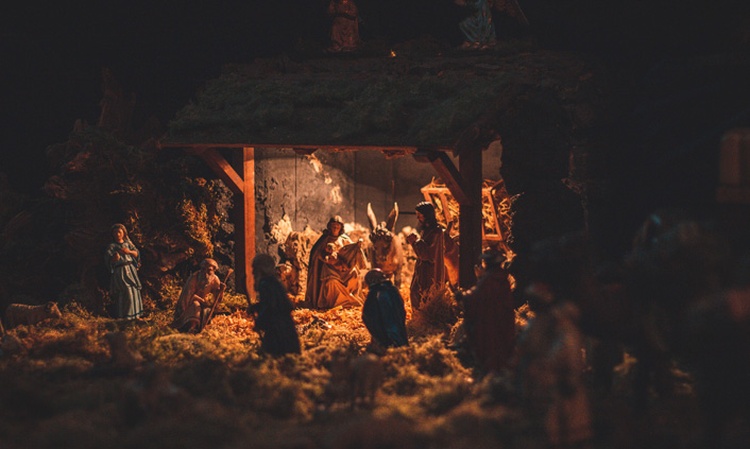
These reflections on the coming of Jesus are from my book Face to Face with Jesus. As you read them this Christmas season, contemplate what amazing grace God showed to us by inhabiting space and time as a human being.
Jesus said to him, “Have I been among you all this time and you do not know me, Philip? The one who
has seen me has seen the Father.” (John 14:9 CSB)
The baby of Bethlehem was Creator of the universe, pitching His tent on the humble camping ground of our little planet. God’s glory now dwelt in Christ. He was the Holy of Holies. People had only to look at Jesus to see God, His permanent manifestation.
In Hidden Christmas, Timothy Keller writes, “When you read the Gospels, you are seeing God’s perfections…in all their breath-taking, real-life forms. You can know the glories of God from the Old Testament, but in Jesus Christ they come near.”
Jesus makes the Father known: “No one has ever seen God; the only God, who is at the Father’s side, he has made him known” (John 1:18 ESV).
John Bunyan wrote, “Christ is the delight of the Father. What solace must that soul be filled with, that has the possession of him to all eternity!”
But when the kindness and love of God our Savior appeared, he saved us. (Titus 3:4-5)
The miracle of the cross was made possible by the miracle of the incarnation. The angels must have been stunned to see the second member of the triune God become a human being.
The baby born in that Bethlehem barn was God, and He was born to die. His death delivers us from our fear of death. His suffering on the cross atoned for our sins, allowing Him to understand and help us.
And incredibly, the incarnation is permanent. Christ rose in a glorified human body that He’ll have forever. It’s not that Jesus suddenly stopped being a man after the ascension. No, the second member of the triune God will be a human being who reigns eternally on the New Earth.
Augustine wrote, “He was created by a mother whom he created. He cried in the manger in wordless infancy, he the Word, without whom all human eloquence is mute.”
The shepherds said to one another, “Let’s go to Bethlehem and see this thing that has happened, which the Lord has told us about.” (Luke 2:15)
In Jesus’ day, shepherds were officially labeled “sinners”—a technical term for a class of despised people. Yet, it was the sinners, not the self-righteous, He came to save (Mark 2:17).
Into this social context of religious snobbery and class prejudice, God’s Son stepped forth. How surprising and significant that God handpicked unpretentious shepherds to first hear the joyous news: “It’s a boy, the Messiah!”
The image of the shepherd was immortalized by Jesus when He said, “I am the good shepherd” (John 10:11). No other illustration so vividly portrays His tender care and guiding hand.
Dietrich Bonhoeffer wrote, “God is not ashamed of the lowliness of human beings…He chooses people as his instruments and performs his wonders where one would least expect them. God is near to lowliness; he loves the lost, the neglected, the unseemly, the excluded, the weak and broken.”
Photo by Burkay Canatar from Pexels




